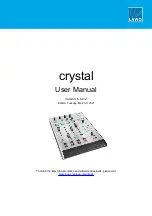
5
ES
IT
FR
NL
DE FI
DA NO
SV
GB
ILL.
Practical handling
Position EasyTurn centrally on the car seat/edge of the bed,
chair, etc.
Positioning
Use
In the car:
The user seats him/herself on the centre of EasyTurn. The
user then raises either both legs simultaneously or one leg at
a time inside the vehicle, thus turning the body inside the car
(EasyTurn is also perfect for turning the user inside the vehicle)
(Illustrations 1, 2 and 3). This avoids unnecessary strain on the
body. To exit, the user swings both legs out of the car, preferably
in stages, before raising him/herself to the standing position.
On a chair:
Position EasyTurn on the chair. The user seats him/herself
on the chair and turns/is turned towards the table (possibly
with assistance from a carer) (Illustrations 4 and 5).
In/out of bed:
The user seats him/herself centrally on EasyTurn and can now
easily turn/be turned in bed.
Then EasyTurn can be removed, by the user moving their
weight to the opposite side. The user moves their weight to
the opposite side to where he/she will leave the bed.
Position EasyTurn so that the hip bone is at an angle to EasyTurn
and/or EasyTurn extends only just past the sacrum/coccyx.
The user then raises him/herself to the seated position and
can swing their legs over the edge of the bed (Illustrations 6, 7
and 8).
To help move the legs in the bed, a OneManSling can be used.


























